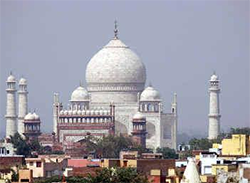Classification of Directive Principles
These principles can be broadly classified under five categories:

Economic Principles:

The State will ensure to do or provide the following to all citizens:
- Adequate means of livelihood for all citizens irrespective of men and women without bias
- Equal distribution of wealth and resources among all classes
- Equal pay for equal work for both men and women
- Just and humane conditions of work, a decent standard of living , full employment, leisure and social and cultural opportunities;
- Participation of workers in the management of undertakings and establishments
- Protection of children, youth against exploitation and against moral and material abandonment.
- Provision of work and compulsory education for all people, relief in case of unemployment, old age, sickness and disability and other cases of undeserved want
- Equality of opportunity and status for all individuals level of nutrition and standard of living of the people
- Public health and enforce prohibition of consumption of intoxicating drinks and drugs
- Environment safeguarding forest and wild life of the country
- A uniform civil code throughout the country
- Protection of adult and child labour
Gandhian / Socialist Principles:

These principles are based on Mahatma Gandhi’s views on the social and economic development of a country and her villages:
- To organize village panchayats and endow them power and authority to enable them to function as unit of self-government.
- To promote cottage industries and village industries on an individual or co-operative basis in rural areas
- To prohibit consumption of intoxicating and injurious drinks and drugs
- To promote educational and economic interests of the weaker sections of the people particularly SCs, STs to establish social justice and equity
- To organize agricultural and animal husbandry on modern and scientific lines
- To prohibit the slaughter of cows and other useful cattle
Protection of Environment and Monuments:

- *To protect every monument of national importance from destruction, disfigurement, removal, disposal or export.
- To protect and improve the environment and wildlife of the country.
Law, Justice and Administration:

- To ensure that the legal system promotes justice on the basis of equal opportunity and shall provide legal aid.
- To ensure opportunities for securing justice is not denied to any citizen.
- To have uniform civil code for all citizens.
- To take steps to separate the judiciary from the executive.
Principles for International Peace and Security:

- To promote international peace and security.
- To maintain just and honourable relations between nations.
- To foster respect for international law and treaty obligation.
- To encourage settlement of international disputes by arbitration.